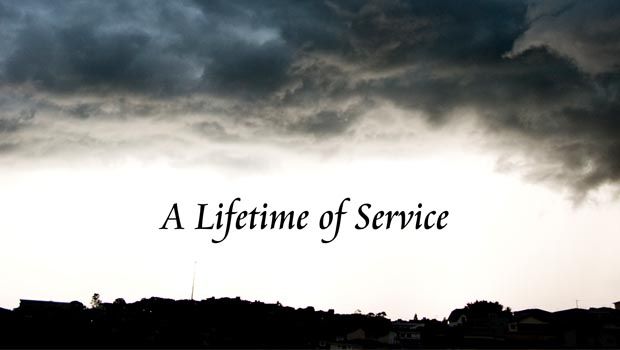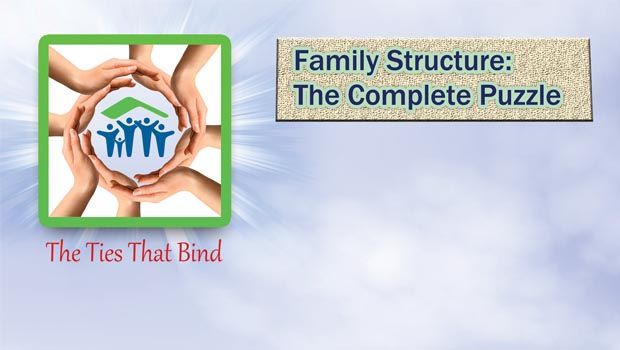As I sit in the lecture hall listening to a scholar speak about haya’ and modesty, I brace myself for what’s to come. Sure enough, right on cue, the scholar begins discussing the importance of hijab and the modest dress of the Muslim woman. He begins with the often used description of the pearl hidden in the oyster shell. Next, he moves on to the expected metaphor of the gold buried deep in the mine, safe from plundering eyes. Soon after, he ends with an anecdotal story about a child who chooses a candy that is covered rather than one that is uncovered and surrounded by flies.
While the well-intentioned sentiment in each of these examples is understood, the analogies are ones that have always made me cringe. As a Muslim woman, being compared to an inanimate object such as the pearl, the gold, or the piece of candy is rather insulting. When the definition of a woman’s modesty is reduced to such limiting parameters, the description itself robs the dignity of haya’ and the equality of treatment ordained by Allah (swt). In Surat Al-‘Ahzab, Allah (swt) defines the rewards for those who believe, regardless of gender: “Indeed, the Muslim men and Muslim women, the believing men and believing women, the obedient men and obedient women, the truthful men and truthful women, the patient men and patient women, the humble men and humble women, the charitable men and charitable women, the fasting men and fasting women, the men who guard their chastity and the women who do so, and the men who remember Allah often and the women who do so – for them Allah has prepared forgiveness and a great reward” (Qur’an 33:35).
In this ayah, there are no analogies drawn to inanimate objects to describe either men or women nor their acts of worship. As a Muslim woman, the way I dress, the way I pray, the way I act, and the way I live my life, is a direct response to the commandments of my Lord. I don’t feel the need to create faulty assessments or to limit the dignity that Allah (swt) has blessed me with by conforming to some humanly defined dictate.
Yes, I am a daughter, a wife, a mother, a friend, an author, a teacher and a thousand other roles that I enact every day. Yet, underlying all of these roles is the one invariable constant. I am a human being created by Allah (swt) to worship Him in all I do. And this alone, is a commandment that applies to men and woman: “Whoever does righteousness, whether male or female, while he is a believer – We will surely cause him to live a good life, and We will surely give them their reward [in the Hereafter] according to the best of what they used to do” (Qur’an 16:97).
Regardless of my gender, I will be judged on the merit of my own actions on the Day of Judgment and this is the ultimate definition of equality. Allah (swt) says: “That no bearer of burdens will bear the burden of another. And that there is naught for man except that [good] for which he strives. And that his effort is going to be seen. Then he will be recompensed for it with the fullest recompense. And that to your Lord is the finality. And that it is He who makes [one] laugh and weep. And that it is He who causes death and gives life. And that He creates the two mates – the male and female” (Qur’an 53:38-45).
Since the Qur’an is so clear, so simple, and so direct in stressing the equality of actions, why do we have so many discussions today about the definitions of women and female values? Why are there so many heated debates around the world about what a woman should or should not do, what she should or should not say, how she should or should not act? Why do gender studies at the university level include a litany of classes such as “Women’s Studies,” “Women in Islam,” “Women throughout the ages,” etc. rather than “Men’s Studies” or “Men in Islam”? The answer to these questions is simple — the discourse on women is a fascinating subject for so many because women are the bearers of future generations. The impact that one woman can make on generations to come is more powerful than even we, as women, may recognize sometimes.
While the status of the mother in Islam is indisputable, it’s not only the child-bearing, nurturing, and rearing that gives a woman so much influence. Think of the Prophet Adam (AS) and his wife Hawa (RA). Their relationship as husband and wife formed the first marriage and provided human tranquility and comfort while setting the foundation for the first family on earth. The evolution of strong women continues in the story of Sittina Hajar (RA) and the strength of character that she maintained when left in the desert with her infant. Upon realizing that this was a commandment from Allah (swt), she willingly put all her trust in His grace and did not doubt that He would protect her and her child. This mother’s purity of devotion allowed her to raise a child who echoed that same trust in Allah (swt) when years later his father was commanded to sacrifice him. And think of Sittina Maryam (AS) who inspired her guardian, Prophet Zakaria (AS), to make du’a for a child of his own against all improbabilities when he witnessed this young woman’s simple faith in the power of Allah (swt) to command the heavens and earth and to say “…Be and it is” (Qur’an 16:40).
This is the influence and the power wielded by the woman who is daughter, wife, mother, and believer in Allah (swt). Although it is important for us to know our history and to understand the impact of Muslim women in the past, it’s also important for us to know what we stand for today. Just as Khadija (RA) could balance the role of being a successful business woman, a respected community leader, an ideal mother to the Prophet’s (SAS) daughters, and a supporting wife, so too do we have multiple roles to balance. I don’t pretend to speak for all Muslim women, but I do speak with the voice of a Muslim woman when I say we are important. We matter! We count! And we need to recognize our worth as ordained by God and not limit ourselves by any human definition of who we are.
From female infanticide of the jahiliya to the crippling stories of rape, abuse, and victimization of our time, how many strong women in this world have been harmed, manipulated, controlled… and more importantly, why? Why was a young girl, eager to be educated, shot and maimed in the hopes of silencing her? How many other females, like Malala Yousafzai, are there in this world that have been successfully silenced at the hands of unjust governments, or even by their own insecurities and internalized misconceptions of inferiority? How many other potential Nobel Peace Prize winners like Tawakkol Karaman will never be given the chance to realize their own strength because they were aborted before birth for no reason other than their gender? As Allah (swt) tells us: “And when one of them is informed of [the birth of] a female, his face becomes dark, and he suppresses grief. He hides himself from the people because of the ill of which he has been informed. Should he keep it in humiliation or bury it in the ground? Unquestionably, evil is what they decide.” (Qur’an 16:58-59).
How many more nameless young women today must be beaten, raped, and abused until we wake up and recognize our worth in the eyes of Allah (swt) and demand the respect and honor that we deserve? Let’s stop defining ourselves in human terms and limiting our definitions of who we are to the way others see us. It’s time for us to begin forging definitions that encompass the internal strength, importance, and beauty of womanhood.
The Chinese writer, Lin Yutang once said that of all the rights of women, the greatest is to be a mother. But does that decrease the value of any woman who may not be a mother, or does it take away from any woman who sees herself as more than just a walking womb? We barter in extremes and often try to conform to fit the diet of the day, the expected education level, or to become the best at this and the best at that, all while juggling a million other perceived and real expectations. What we often fail to realize is that the stress and pressure that we put upon ourselves “to be all that we can be” and beyond, can only stretch our human capability so far until we snap.
We, as women, owe it to ourselves and to our future generations to fulfill the sanctity of our relationship with Allah (swt). We have the right to recognize who we are and to not sell ourselves short. We have the right to fit many roles and to accomplish many goals in this brief life. We have the right to think and to act for ourselves in accordance with the commandments of Allah (swt). We have no need to compare ourselves to others and to feel like we just don’t measure up. It is not right to denigrate ourselves or to act on human definitions forced upon us. It is not deserved to question our equality in the eyes of Allah (swt). And we definitely don’t have the need to question whether or not we are worth something in this dunya and in the akhirah.
If we stoop to the level of accepting the definitions that are handed to us or any other negative definitions that we have internalized, then like an unmoored ship, we are bound to float aimlessly without anchoring our actions to a greater ideal. Whether it is the expectations of society, family, or self, we all have a lot on our plates. But this is where we need to revive our sense of ummah. And we can start here and now, within the very ranks of our own broken sisterhood.
As women, we’ve been blessed with a sense of empathy that we need to share. We cry together at the injustices of this world. We feel the pain of the mother who must bury her child, whether after a school shooting in a state nearby or after incessant bombings in a country thousands of miles away. We understand the hardships of the single woman wanting nothing more than to start a family and settle down. We see the struggle of the young university student trying to balance her deen and her dunya. We know the difficulty of the divorced or widowed woman fighting to raise her children in a world that acts like she’s invisible. But it’s not enough to simply see, feel, and understand. We must also act. How are we changing these definitions for our sisters? How are we changing their hardships? How are we changing our own conditions? Our legacy lies in reshaping these situations and reminding each other to live by the definitions that have been divinely ordained for us.
When I think of strong women who inspire me, I think of those who have defeated adversity. I think of the women in our Islamic history like Sittina Asiya (RA), who lived in the most unjust of situations but maintained her trust in Allah (swt), and Sittina Aisha (RA), the young wife who narrated thousands of hadith, and Sittina Fatima (RA), the devoted daughter, mother and wife, along with countless others who come to life through their struggles and their shared stories. I also think of women today: single women who thrash about daily to make ends meet, victims of abuse and horrible situations that have overcome their hardships and now educate others, mothers raising children on their own, mothers who have lost their own children and are raising the children of others, and many, many more who make a difference in the lives of others every day.
I need to think of women who inspire me to do more, to be better, and to achieve for His sake and for the sake of His love alone. We all need reminders. Reminders that can teach us to honor ourselves; to have dignity and self-respect; to take time for ourselves; and to love ourselves for who we are. We are worth it—don’t listen to anyone who tells you otherwise. Our multiple responsibilities and the giving of our selves with every ounce of caring and energy to those around us, make it easy to forget sometimes the greater purpose, the greater love, the greater sense of being that we need to recapture.
When asked why he chose to build schools for Muslim girls in Afghanistan, Greg Mortenson once explained that by educating a boy, he could change one individual but that by educating a girl, he could change an entire community. It’s time that we too believe in our own sense of self-worth and begin forging definitions and identities that go above and beyond the ones society imposes upon us. It is up to us to decide if we are content to be defined by the pearl, the gold, and the candy… or if we want to be defined by a much higher ideal.
Stop for just a moment. Drop the seventeen things that you are doing right now. Take a deep breath. And ask yourself… “Who defines me?”




